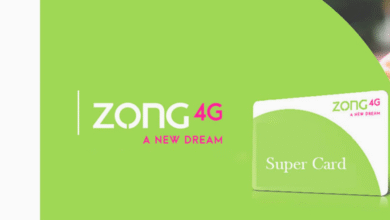
Fintech is revolutionizing Online Payments in Pakistan, driving a seismic shift in how individuals and businesses conduct financial transactions. With one of the world’s youngest populations and rapidly increasing smartphone penetration, Pakistan has become fertile ground for digital payment solutions. Traditional cash-based transactions are giving way to mobile wallets, contactless Online Payments, and instant bank transfers, creating a more inclusive financial ecosystem. This transformation is not only enhancing convenience for users but also contributing to economic growth by bringing millions of unbanked citizens into the formal financial system.
The rise of fintech in Pakistan has been accelerated by supportive government policies, innovative startups, and changing consumer behavior. The State Bank of Pakistan’s (SBP) push for a digital economy through initiatives like Raast (the instant payment system) has been instrumental in this transition. Meanwhile, homegrown fintech players like JazzCash, EasyPaisa, and Nayapay are redefining financial accessibility with user-friendly mobile payment solutions. As internet connectivity improves and digital literacy grows, fintech is poised to completely reshape Pakistan’s payment landscape, making transactions faster, more secure, and accessible to all segments of society.
How Fintech is Transforming Online Payments in Pakistan
The Rise of Fintech in Pakistan
Pakistan’s fintech landscape has evolved rapidly, driven by a combination of technological advancements and regulatory support. A key factor behind this growth is the increasing penetration of smartphones and affordable mobile data, which has enabled millions to access digital payment solutions. Companies like JazzCash, EasyPaisa, and Nayapay have become household names, offering mobile wallets that allow users to transfer money, pay bills, and make Online Payments purchases seamlessly.
Impact on Financial Inclusion
One of the most significant contributions of fintech in Pakistan is its role in promoting financial inclusion. A large portion of the country’s population remains unbanked, primarily due to limited access to traditional banking infrastructure. Fintech solutions, particularly mobile wallets and branchless banking, have bridged this gap by providing accessible and user-friendly alternatives. For instance, Easypaisa and JazzCash allow users to open digital accounts with minimal documentation, enabling even those in rural areas to participate in the digital economy.
Enhancing E-Commerce and Digital Transactions
The growth of e-commerce in Pakistan is closely tied to advancements in fintech. Online marketplaces like Daraz, Alibaba, and local platforms are increasingly adopting digital payment methods, reducing dependency on cash-on-delivery (COD). Fintech solutions such as secure payment gateways, buy-now-pay-later (BNPL) services, and QR code payments are enhancing the shopping experience for consumers. Furthermore, fintech is enabling cross-border transactions, allowing freelancers and businesses to receive international Online Payments seamlessly.
Challenges Facing Fintech in Pakistan
Cybersecurity and Fraud Risks
One of the biggest hurdles for fintech growth in Pakistan is the rising threat of cyberattacks and financial fraud. As digital transactions increase, so do phishing scams, identity theft, and unauthorized transactions. Many users, particularly those new to digital Online Payments, fall victim to fake apps and SMS scams. Strengthening cybersecurity measures, implementing biometric authentication, and increasing consumer awareness are essential to mitigate these risks.
Low Digital and Financial Literacy
A significant portion of Pakistan’s population, especially in rural areas, lacks basic digital and financial literacy. Many people are hesitant to adopt digital payment methods due to a lack of trust or understanding of how these systems work. Without proper education campaigns and user-friendly interfaces, fintech adoption will remain slow among certain demographics.
Regulatory and Compliance Barriers
While the State Bank of Pakistan (SBP) has introduced progressive policies, regulatory challenges still exist. Fintech startups often face complex licensing requirements, compliance costs, and slow approval processes. Additionally, frequent changes in regulations can create uncertainty for businesses trying to innovate in the payment space. A more streamlined and adaptive regulatory framework is needed to foster growth.
Limited Banking Infrastructure in Rural Areas
Despite the rise of mobile wallets, many rural regions still suffer from poor internet connectivity and a lack of banking infrastructure. This limits the reach of fintech services, as many users still rely on cash transactions. Expanding 4G/5G coverage and improving last-mile financial access through agent networks are crucial for nationwide fintech adoption.
High Reliance on Cash Economy
Pakistan remains a cash-dominant society, with many consumers and merchants preferring physical currency over digital payments. Changing this mindset requires incentives such as cashback rewards, lower transaction fees, and greater merchant acceptance of digital Online Payments.
Future Prospects of Fintech in Pakistan
Expansion of Digital Banking and Neobanks
The future of fintech in Pakistan includes the rise of fully digital banks (neobanks) that operate without physical branches. These banks will offer seamless account openings, AI-driven financial management, and personalized services, attracting younger and tech-savvy customers.
Adoption of Blockchain and CBDCs
Blockchain technology and Central Bank Digital Currencies (CBDCs) could revolutionize Pakistan’s financial system. The SBP has already shown interest in exploring a digital rupee, which could enhance transparency, reduce fraud, and enable faster cross-border transactions.
AI and Machine Learning for Fraud Prevention
Artificial intelligence (AI) and machine learning will play a crucial role in detecting and preventing fraudulent transactions. Advanced algorithms can analyze spending patterns in real-time, flagging suspicious activities before they cause financial harm.
Growth of Buy Now, Pay Later (BNPL) Services
BNPL platforms are gaining traction in Pakistan, allowing consumers to make purchases and pay in installments without interest. This trend is expected to grow, particularly in e-commerce, enabling more people to access credit in a structured manner.
Increased Cross-Border Payment Solutions
With Pakistan’s growing freelance workforce and overseas remittances, fintech solutions that facilitate instant, low-cost cross-border Online Payments will become increasingly important. Partnerships with global payment providers will help streamline international transactions.
Read More: Top 5 Pakistani Startups Disrupting the Tech Industry in 2025
Conclusion
Fintech is undeniably transforming Online Payments in Pakistan, creating a more inclusive and efficient financial ecosystem. From mobile wallets to instant payment systems, digital transactions are becoming the norm, reducing reliance on cash and traditional banking. The government’s proactive policies, coupled with private sector innovation, are accelerating this shift, benefiting businesses, consumers, and the overall economy.
As Pakistan moves toward a cashless society, the focus must remain on enhancing security, improving digital literacy, and expanding infrastructure to underserved regions. With continued advancements in technology and regulatory support, fintech will play an even greater role in shaping the future of online payments in the country, driving economic growth and financial empowerment for millions.
FAQs
What is fintech, and how is it changing Online Payments in Pakistan?
Fintech refers to technology-driven financial services, and in Pakistan, it is revolutionizing Online Payments through mobile wallets, instant transfers, and digital banking solutions, making transactions faster and more accessible.
Which are the most popular fintech apps in Pakistan?
JazzCash, EasyPaisa, Nayapay, and Upaisa are among the leading fintech apps enabling digital payments, money transfers, and bill payments across the country.
How does fintech promote financial inclusion in Pakistan?
By offering mobile-based banking solutions, fintech allows unbanked populations, especially in rural areas, to access financial services without needing traditional bank accounts.
What are the risks associated with fintech Online Payments?
Cybersecurity threats, fraud, and phishing scams are key risks, emphasizing the need for secure authentication and user awareness to protect digital transactions.
What is the future of fintech in Pakistan?
The future looks promising with advancements in AI, blockchain, and government-backed digital payment systems like Raast, paving the way for a fully digital economy.











